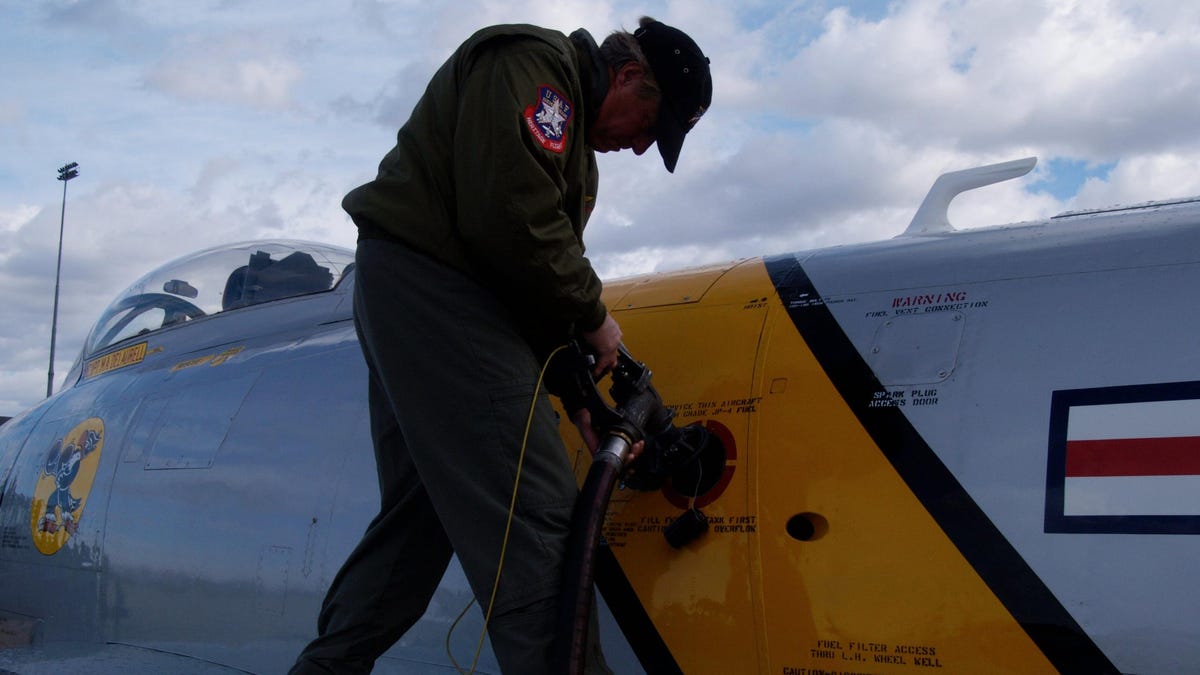NTSB Says the Death of Legendary F-14 Pilot Dale 'Snort' Snodgrass Was Caused by Error At Preflight

Photo: Associated Press (AP)
A new report from the NTSB says the plane crash that killed legendary F-14 pilot Dale “Snort” Snodgrass was likely caused by pilot error. The NTSB report, released on July 6, concluded that Snodgrass failed to remove his plane’s flight control lock, which caused the retired naval aviator to lose control of the aircraft immediately after takeoff, resulting in the fatal crash.
The accident happened at Lewiston-Nez Perce County Airport, on July 24, 2021, around 11:52 a.m. local time. Lewiston ATC had cleared Dale’s SIAI-Marchetti SM-1019B for takeoff at 11:50. Dale got to the runway, announced takeoff at 11:51, and 36 seconds later, ATC heard the pilot curse into the headset. His aircraft had become airborne, but the plane “pitched up aggressively, rolled left, and descended,” nose-down, crashing to the ground at midfield. Snodgrass died of blunt force injuries.
Photo: Associated Press (AP)
The NTSB began investigating the crash shortly thereafter. And, now, just under one year later, the agency published the Aviation Accident Final Report, which determined the probable cause of the crash to be:
The pilot’s failure to remove the flight control lock before departure, which resulted in a loss of airplane control and impact with terrain. Contributing to the accident was his failure to perform an adequate preflight inspection and flight control check before takeoff.
The flight control lock immobilizes the plane’s aileron and elevator controls, which are both critical components. Removing the lock is part of preflight check, and once removed, the pilot regains control of the ailerons and elevators. These control roll and pitch, respectively. But it’s fully possible to taxi and takeoff without removing this locking system; even with the lock in place, the rudder and tailwheel have almost full-range of movement. In other words, the plane seems completely unhindered while taxing.
The NTSB notes it is possible to remove the lock after takeoff, but forces acting on the control stick make it difficult. The investigators go on to detail accounts of other pilots with similar craft, who said it’s easy to overlook the lock because the plane is mostly maneuverable. But, also, because the lock mechanism is narrow, making it less obvious from the pilot’s seat. Investigators said that Dale had limited experience with the SIAI-Marchietti SM-1019B, having flown the airplane twenty times before the crash, for about 20 hours of flight time.
NTSB investigator were unable to find any evidence or indication of mechanical failure in the wreckage of the SIAI-Marchietti that could have caused the crash.
Photo: National Air And Space Museum
The report findings are notable because Dale “Snort” Snodgrass is one of the most revered pilots in U.S. history, with a career spanning nearly 50 years. He flew iconic machines on the airshow circuit as a demonstration pilot for 20 years. He piloted F-14s, F-86s, P-40s, P-51s, and T-6s in demos, according to the Smithsonian. And he logged an estimated 6,500 flight hours as a civilian.
He was also legendary fighter pilot, who flew an undisclosed number of missions for the U.S. Navy. The 72-year-old was often called the real-life “Maverick,” because he was, reportedly, the inspiration for the character Tom Cruise plays in Top Gun and its sequel. Dale even attended the real Top Gun — the Navy Fighter Weapons School — in 1978, just four years after he’d finished flight school in 1974. And Dale would remain a pilot until his death in 2021.
Photo: Associated Press (AP)
Photo: Ben Bloker (Getty Images)





